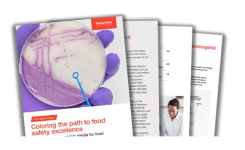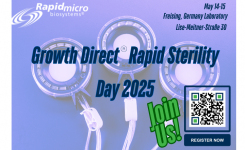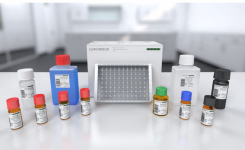Leading Dermatology Centre Uses DWS Equipment to Rapidly Test New Anti-microbials
go back to news archives
Microbiologists at the SRC are using the Whitley automated spiral plater (WASP) and the ProtoCOL colony counter to rapidly process samples containing micro-organisms taken from patients being treated with anti-microbial drugs and topical therapies. The plate counts generated are then used to determine which treatments are the most effective at reducing the number of micro-organisms associated with diseases on the skin of clinical trial subjects. |
Source : Don Whitley Scientific View Company Information
Posted on November 8, 2007
















